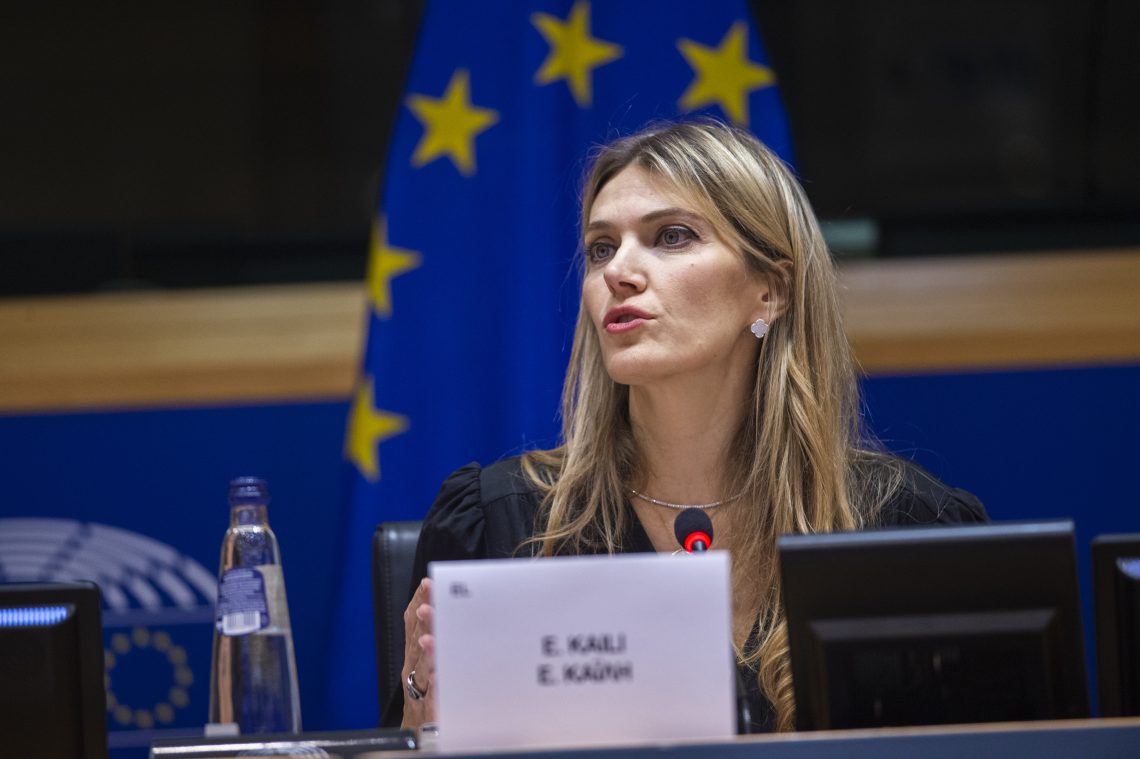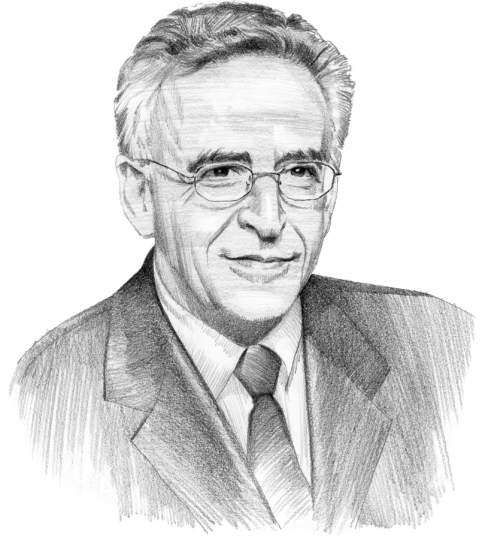Qatargate, Morocco and the EU
By taking the right steps, the European Union can mitigate the reputational harm caused by a corruption scandal involving allegations against members of the European Parliament.

© Getty Images
In a nutshell
- Qatar and Morocco allegedly paid bribes to help soften European criticism
- The countries are too important for Europe’s interests to be sidelined by the scandals
- The scandal’s silver lining could be a firming of the EU’s transparency rules
The worst scandal to hit the European Union in decades is expanding as Belgian investigators pursue inquiries into alleged cash-for-favors schemes involving payments by Qatar and Morocco to members of the European Parliament. But will these revelations undermine the 27-nation bloc and its vaunted values, or will they prove a storm in a teacup as Europe faces significant geopolitical challenges?
Brussels started the new year with a former vice president of the European Parliament, the Greek socialist Eva Kaili, in jail. A Belgian judge denied her bail following allegations of corruption, membership in a criminal organization and money laundering. The Belgian criminal investigation also focuses on her partner, Francesco Giorgi, and a parliamentary staffer, former Italian socialist MEP Pier Antonio Panzeri.
In 2019, Mr. Panzeri founded Fight Impunity, an anti-corruption nongovernmental organization (NGO), along with his wife and daughter as well as Niccolo Figa-Talamanca, the head of another NGO sharing the same Brussels address. Allegations concern influence-peddling on behalf of Qatar and Morocco in exchange for large cash payments. According to Belgian and Italian sources, the charges are denied by those involved except Mr. Giorgi, who confessed and implicated others, and Mr. Panzeri, who agreed to provide full information in exchange for a lighter sentence. In February the European Parliament lifted the immunity of a Belgian and an Italian MEP who are under investigation on related charges.
Qatargate will probably give new vigor to work on an independent ethics body for all EU institutions.
The European Commission is also inquiring into the lobbying activities of its former migration commissioner, Dimitris Avramopoulos, who joined the board of Fight Impunity and duly reported payments received for his services. Indeed, several prominent figures joined the Fight Impunity board, convinced by its declared objectives, and have now resigned. Despite its lobbying activities, Fight Impunity did not sign up to the EU’s Transparency Register.
Qatargate, as the scandal has been dubbed, was apparently aimed at burnishing the energy-rich Gulf state’s image, especially on labor rights, as migrant workers make up almost 90 percent of its workforce. That was a particularly sensitive issue last year with Qatar hosting the FIFA World Cup and EU decisions, temporarily shelved, due on visa-free travel for Qatari tourists and privileges for Qatar Airways, a major international airline, in Europe.
The Moroccan intelligence services and the country’s ambassador in Poland are reportedly also under investigation. Alleged bribes by Morocco to secure a more favorable view of its occupation of Western Sahara and its suspected role in using Israeli Pegasus software to spy on European leaders may also involve other MEPs.
A blow to the EU’s reputation
Qatargate appears to have knocked the EU from its pedestal as the world’s human rights and rule-of-law champion. Brussels holds strongman regimes from Hungary to China accountable for their democratic failings. Its reputed “soft power” aims to influence others by the example it sets. Little wonder conservative nationalist leaders with an authoritarian bent could scarcely contain their glee at the Qatargate revelations, mainly because most of the scandal’s European protagonists are socialists. Hungary’s Prime Minister Victor Orban, smarting from the withholding of EU funds because of democratic shortcomings in his country, even said the European Parliament should be abolished. Qatargate received saturation coverage by government-friendly media in Hungary and Poland.
European Commission President Ursula von der Leyen repeatedly has called on EU institutions to “be open and beyond reproach on ethics, transparency and integrity if Europeans are to have faith in the Union.” In 2019, she gave Commission Vice President Vera Jourova, from the Czech Republic, responsibility for setting up “an independent ethics body common to all EU institutions.” Yet, when Qatargate broke three years later, this proposal remained bogged down among EU institutions.
European Parliament President Roberta Metsola, a conservative politician from Malta, claimed that the legislature itself was under attack in Qatargate and blamed “malign actors linked to autocratic third countries.” But critics see this as “self-inflicted damage,” as many parliamentarians resist adding a new enforceable ethics code to present rules on avoiding conflicts of interests and declaring outside interests. Yet these rules are widely ignored.
Unregistered lobbying and dubious activities by nondemocratic countries using joint “friendship” groups have proliferated. That, of course, is not unknown in national parliaments, but accusations against the EU’s parliament of cronyism and horse trading have grown in recent years. According to Charles Michel, the European Council president, the effect of the latest scandal is “dramatic and damaging to the credibility of the European Union,” making it harder to handle Europe’s multiple crises.

Storm in a teacup?
Mr. Michel emphasizes Qatargate’s negative impact and the need for more effective safeguards. But the EU showed resilience after past scandals in the late 1990s, entering one of its most dynamic phases in the early 2000s with the replacement of national currencies by euro banknotes in 2002 and the “big bang” enlargement bringing in 10 new members in 2004.
Arguably, Qatargate is troubling with considerable reputational damage but probably few political ramifications. Much of the public impact of the scandal, according to an Italian observer, can be explained by televised images of the 1.5 million euros recovered by the Belgian police in piles of banknotes. If there had been dry media reports of even larger sums sent to tax havens by bank transfer, as with the Panama Papers exposures, there might have been less media outcry. Leaks from the Belgian judicial inquiry have further fed media interest and could complicate any resulting prosecutions.
The EU’s soft power, leveraging Europe’s attractiveness to countries worldwide, is unlikely to suffer significantly from Qatargate, considering the prevalence of corruption elsewhere. The EU’s “democratic deficit” has not demoted Germany, Sweden, France and Denmark from the top 10 best-country rankings in the latest annual global survey by the Wharton School of the University of Pennsylvania.
Europe’s living standards, health and education systems, cultural attainments and attachment to human rights and social justice still give it a soft power edge despite corruption episodes and the remarkable economic progress made by emerging countries in Asia. Still, with inflation peaking, little economic growth in view, and the war in Ukraine continuing, there are scant grounds for complacency.
Political realism suggests that Qatargate may have few lingering repercussions. Qatar is the EU’s second-largest supplier of liquified natural gas after the United States, and its importance in Europe’s energy security will grow as pipeline gas from Russia dwindles. A Qatar diplomat reacted to the Belgian corruption investigation by commenting that it could negatively affect relations and gas supplies if allowed to get out of hand. This warning implies that Qatar could follow Saudi Arabia and its other regional rivals in weaponizing oil and gas.
France and Germany are the main recipients of Qatar’s foreign direct investment in the EU, with vast funds flowing to iconic corporations, construction projects, small- and medium-sized enterprises and social projects. France offers significant tax exemptions to attract Qatari funds. It is the second-largest arms exporter to Qatar, after the U.S. German Chancellor Olaf Scholz visited Qatar in September 2022. In December, French President Emmanuel Macron went there to see France compete in the FIFA World Cup final. Qatar owns France’s top soccer team, Paris St. Germain, and reports have swirled since 2017 of a likely French role in awarding the 2022 FIFA World Cup tournament to Qatar.
There is still time for the European Parliament to tighten up rules on preventing conflicts of interest and declaring outside interests before next year’s elections.
Italy’s former Prime Minister Mario Draghi reiterated Qatar’s importance as an energy, economic and military partner during his period in office. Qatar became a major client for Italian naval vessels in 2017, with an order worth 5 billion euros. Mr. Draghi’s successor, Giorgia Meloni, angrily rejected any implication that Italy was responsible for Qatargate.
Qatar is one of 17 non-NATO allies of the U.S. and host to the forward headquarters of the U. S. Central Command (CENTCOM) covering the Middle East and large parts of Asia. Clearly, Qatar is not a country to be trifled with by European leaders, and Qatargate is an embarrassment they want to forget.
French Foreign Minister Catherine Colonna visited Morocco on December 15-16, after the scandal involving Qatar and Morocco broke, to prepare for a visit to Rabat by the French president early in 2023. France’s goal is to normalize relations, following a period of tensions, amid overtures from Paris to Morocco’s regional rival Algeria.
As a sweetener, France lifted visa restrictions on Moroccan citizens ahead of Ms. Colonna’s visit, even though Rabat had not met the conditions set by Paris. The French Foreign Ministry described relations with Morocco in effusive terms, referring to “the exceptional bilateral partnership between Morocco and France, which is characterized, above all, by very close, rich human ties spanning the Mediterranean.” It brushed aside the Pegasus affair, involving Moroccan hacking of the French president’s telephone, without comment because it was sub judice and denied any knowledge of Morocco’s involvement in Qatargate.
President Macron has gone further than any of his predecessors in apologizing for the excesses of French colonial rule in Morocco. Migration issues, social tensions and the many French citizens of Moroccan origin incline him to treat Morocco cautiously. Realpolitik rules out any risk that Morocco’s alleged role in bribing members of the European Parliament will cast a shadow over bilateral relations.
Implications
Recent revelations follow two troubled decades of democratic governance in the EU and the European Parliament. They come a year before parliamentary elections when the EU’s democratic legitimacy is widely questioned. EU leaders have not pushed back sufficiently against lax practices in their parliament over the past three years. This new scandal could detract from the EU’s achievements affecting voter turnout and support for moderate parties in the 2024 elections.
But there is still time for Parliament to tighten up rules on preventing conflicts of interest and declaring outside interests before next year’s elections. The existing code of conduct could be extended to former MEPs and assistants. The body could do with a “cooling off period,” as in the Commission, during which former members cannot lobby for interest groups related to their previous official responsibilities. Qatargate will probably give new vigor to work on an independent ethics body for all EU institutions.
On balance, the Qatargate setback could counter the corrosion of the EU’s democratic legitimacy and strengthen European diplomacy. Beyond its borders, the EU seems likely to pursue European values, such as political accountability, as well as geopolitical interests, including energy security, more pragmatically, avoiding moral lectures.








